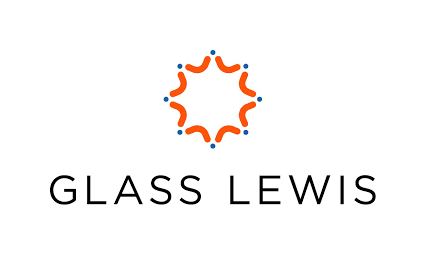Glass Lewis Releases its 2024 Canada Voting Policy
On November 22, 2023, Glass Lewis released its 2024 Policy Guidelines for Canada. Below is a summary of the voting policy updates and clarifying amendments which will take effect for all meetings held after January 1, 2024. Should you have any questions, please contact Laurel Hill.
Voting Policy Updates
Board Accountability for Climate-Related Issues
Glass Lewis is introducing a new voting policy which will be applied to those TSX 60 companies operating in industries where the Sustainability Accounting Standards Board (SASB) has determined that companies’ GHG emissions represent a financially material risk. The full list of SASB designated industries can be found here. Glass Lewis will recommend against the chair of the committee or board charged with the oversight of climate related issues in instances where Glass Lewis finds that companies with this increased risk exposure have either no disclosure or significantly lack disclosure regarding these risks, including how they are being mitigated and overseen. Additionally, Glass Lewis will recommend against the chair of the governance committee if no committee has been charged with such oversight.
Human Capital Management
Glass Lewis has added human capital management to its existing voting policy for board accountability for environmental and social performance. Glass Lewis will recommend against the chair of the committee tasked with oversight of the company’s environmental and/or social issues, or the chair of the governance committee or the chair of the board, where a board has failed to respond to legitimate concerns with a company’s human capital management practices.
Cyber Risk Oversight
Glass Lewis has expanded their Cyber Risk Oversight policy to include, where a company has been materially impacted by a cyber-attack, that it may recommend voting against appropriate directors should it be found that the board’s oversight, response or disclosures concerning cybersecurity-related issues to be insufficient or not clearly outlined to shareholders.
Interlocking Directorships
Glass Lewis has expanded the existing “Conflicts of Interest” policy for the election of directors to include a detailed description of board interlocks. A board interlock exists when top executives serve on each other’s board, whether each of the companies in question are publicly-listed or private. It is expected, although not explicit in the Glass Lewis voting policy, that Glass Lewis will deem any C-level employee, senior management (VP and up), or an executive director as a company executive. The interlocked directors will be deemed to be “affiliated”—which may cause a negative recommendation based on the application of Glass Lewis’ independence requirements for key committees and the board. Furthermore, on a case-by-case basis, Glass Lewis may also make negative recommendations based solely on the board interlock and whether a conflict of interest exists.
Long-Term Incentive Awards
Glass Lewis requires that at least 50% of LTI awards be performance-based. Time-based vesting, such as how stock options typically vest, do not count as performance-based awards. This will count as a negative factor in executive compensation analysis and may contribute to a negative recommendation in combination with other negative factors.
Clarifying Amendments
Nominating and Corporate Governance Committees
To clearly delineate the policy guidelines when companies do not have a combined nominating and governance committee, Glass Lewis has separated its former “Nominating and Corporate Governance Committee Performance” section into individual sections for “Nominating Committee Performance” and “Corporate Governance Committee Performance.”
Governance Following an IPO, Spin-Off or Direct Listing
Glass Lewis will generally avoid negative recommendations on the basis of corporate governance best practices for new listings.
Glass Lewis will recommend against the chair of the governance committee or most senior representative of the major shareholder up for election if the board: (i) did not also commit to submitting the multi-class structure to a shareholder vote at the company’s first shareholder meeting following the IPO; or (ii) did not provide for a reasonable sunset of the multi-class structure (generally seven years or less).
Non-GAAP to GAAP Reconciliation
Glass Lewis requires additional disclosure for non-GAAP measures used in incentive programs and lack of disclosure may be a factor in a say-on-pay recommendation.
Additional Updates
Laurel Hill’s 2023 Trends in Corporate Governance Report
Additional corporate governance updates covering non–contested director elections, auditor votes, executive compensation, shareholder proposals, virtual meetings, and ESG developments can be found in Laurel Hill’s 2023 Trends in Corporate Governance Report which can be found here.

